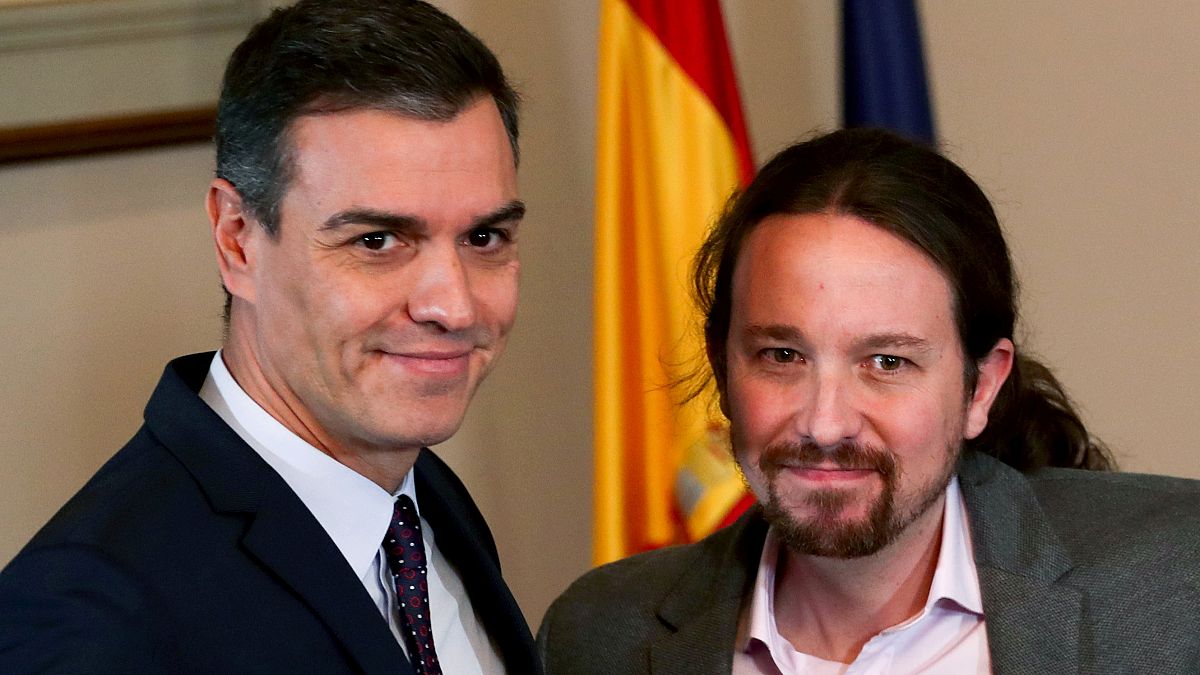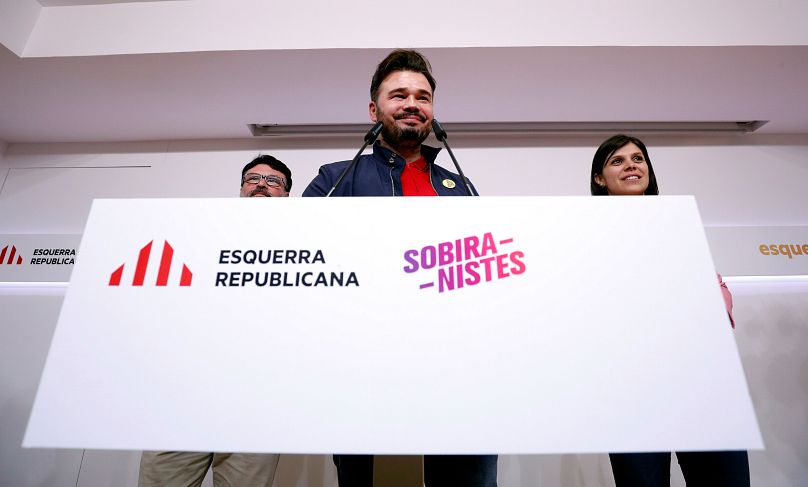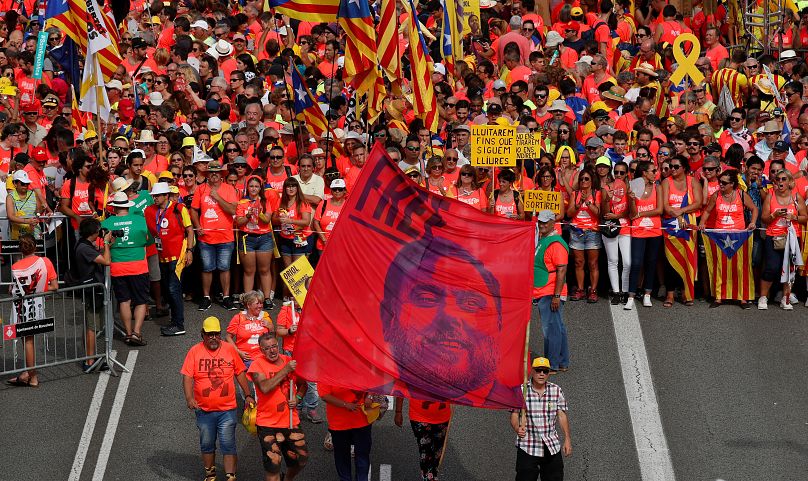Spain's acting Prime Minister and Socialist leader Pedro Sánchez meet pro-independence Catalan Party to unlock the political stalemate.
After months of stalemate, Spain could be closer to forming a government with acting Prime Minister Pedro Sánchez holding talks with pro-independence party Republican Left of Catalonia (ERC).
The results of November’s general election — the fourth in four years — drew a political spectrum divided and complex that left Sánchez and his Socialist Party with no other option but to reach an agreement with the rest of the left-wing parties.
A lower number of seats for the socialists and a dramatic uprising of the far-right party Vox Party forced the socialists to quickly sign a coalition agreement with far-left Podemos and seek the support of pro-Catalan independence parties.
To secure his government, Pedro Sánchez held three meetings with ERC during the past week. The approach between both parties has sparked critics among socialists and independentists circles.
ERC’s leader, Oriol Junqueras, is one of the Catalan politicians serving a sentence for orchestrating an illegal independence referendum in 2017. After the talks with Sánchez, Junqueras said on an interview with Spanish newspaper La Razon that ERC will say “no” to Sánchez if he does not compromise to establish negotiations.
“ERC has been very clear about its conditions. If they are given, we can rethink our position, but if a negotiating space is not agreed as we claim our vote will be negative. We are not negotiating an investiture, but the mechanisms to seek a democratic solution to the conflict”, Junqueras said.
The independentist party wants to talk with the acting prime minister about the right to self-determination of the Catalan people and the possibility of amnesty for what they call “political prisoners”.
The feedback provided by the republicans after the meetings was positive. A joint press release published after the second reunion said that talks regarding the future of the Catalan conflict were developing. Socialists and republicans also claimed to share a similar position in social, civil and labour rights.
However, a good understanding between the two parties has aroused fierce controversy. Emiliano Garcia-Page and Javier Lambán, two prominent figures of the Socialist Party and the presidents of Castilla la Mancha and Aragon’s regional governments, respectively, harshly criticised the negotiations with the Catalan republicans.
The concept of plurinationality is one of the cornerstones of the Spanish socialist party but Garcia-Page and Lambán oppose to use the term nation to define Catalonia.
Regarding the negotiations, Garcia-Page declared that he did not want “vaseline” as a Christmas present this year, a comment understood to mean about easing an agreement to form a government.
“I don't want and I don't think any Spanish wants vaseline,” he declared. “We want to have a good holiday, a good 2020 and have a clear conscience."
Lambán described as “unnecessary and undesirable” an agreement with the Republican Left of Catalonia.
Miquel Iceta, Catalonia’s socialist leader said on Friday that he hopes for an agreement with ERC and would support the idea of setting up negotiations.
"A meeting between governments is a bilateral meeting, wherever they are. If it were in Congress, in Parliament or the Senate I would also be happy with it. What I want is dialogue", he said on an interview with Catalunya Radio.
Immunity for Junqueras?
Sánchez is trying to speed up talks to hold an investiture vote between the 26th and the 29th of December and form a government before the end of the year.
However, the pro-independentist party is awaiting the European Court of Justice (ECJ) resolution regarding the immunity of Oriol Junqueras as an MEP.
The former deputy leader of Catalonia, jailed in Spain for helping to orchestrate an illegal independence referendum, had the right to ask the European Parliament whether to uphold his immunity.
The party considers that a favourable resolution from the ECJ could impact the negotiations. "It has an impact on the negotiating capacity and that is how we have transferred it internally," said ERC's spokeswoman.
Szpunar said Junqueras’s conviction had brought his mandate as a European Parliament member (MEP) to an end, but that he had been tried and convicted without the parliament having been allowed to decide on his immunity.
The opinion, if followed by the court, would appear to give Junqueras grounds to challenge his conviction, but it was not clear if it would be enough to overturn it.


